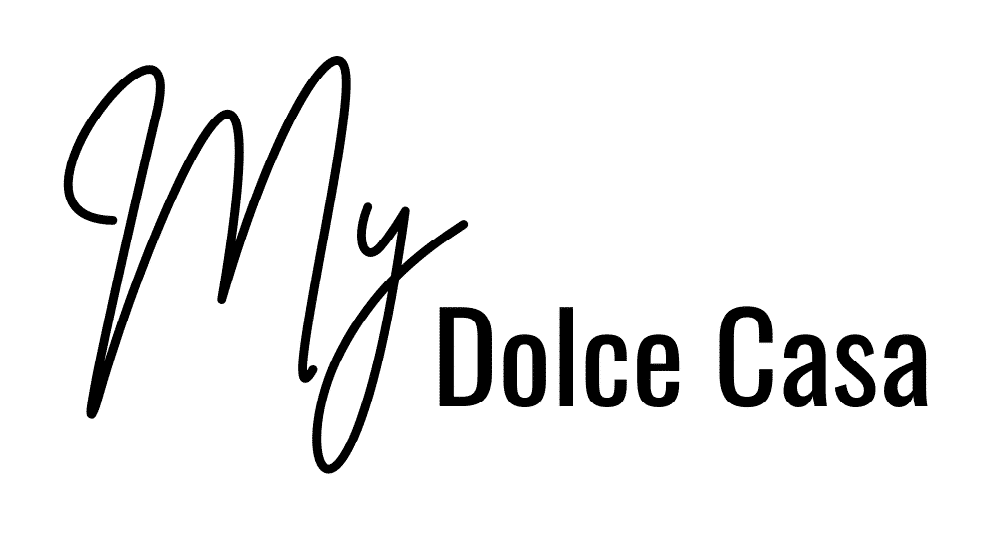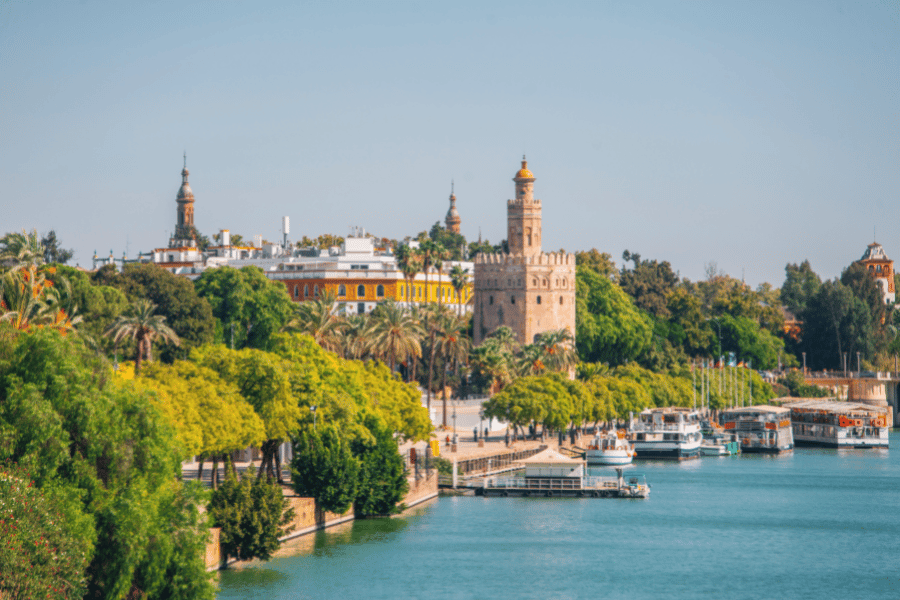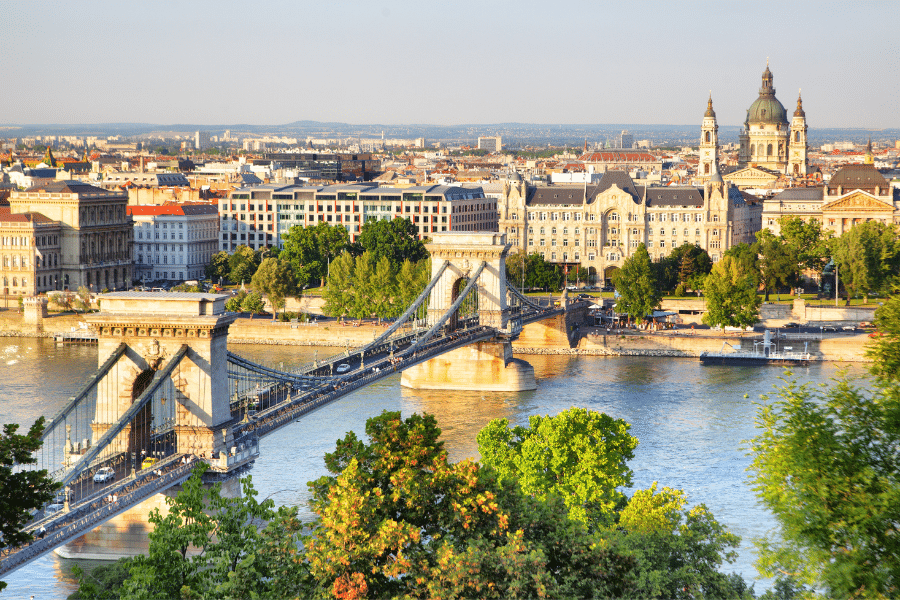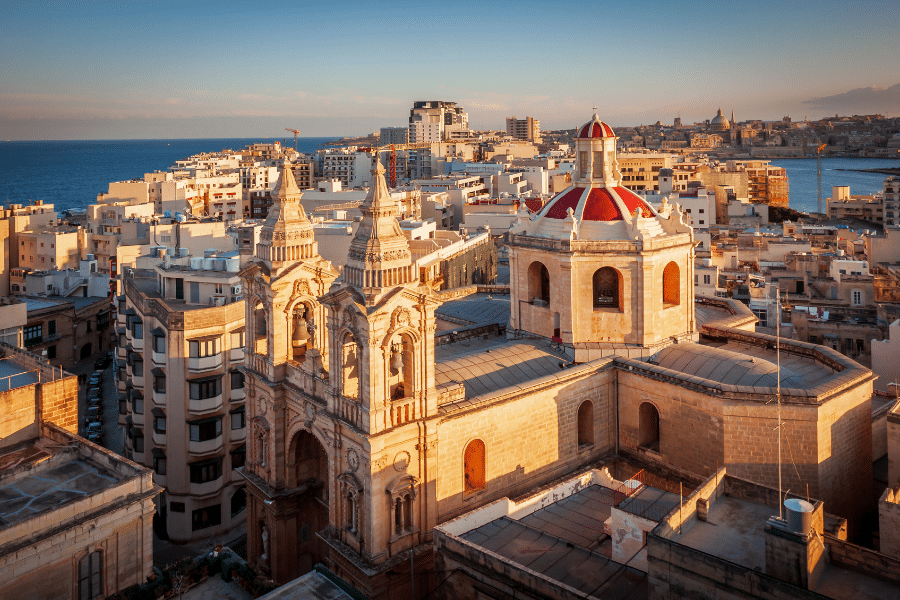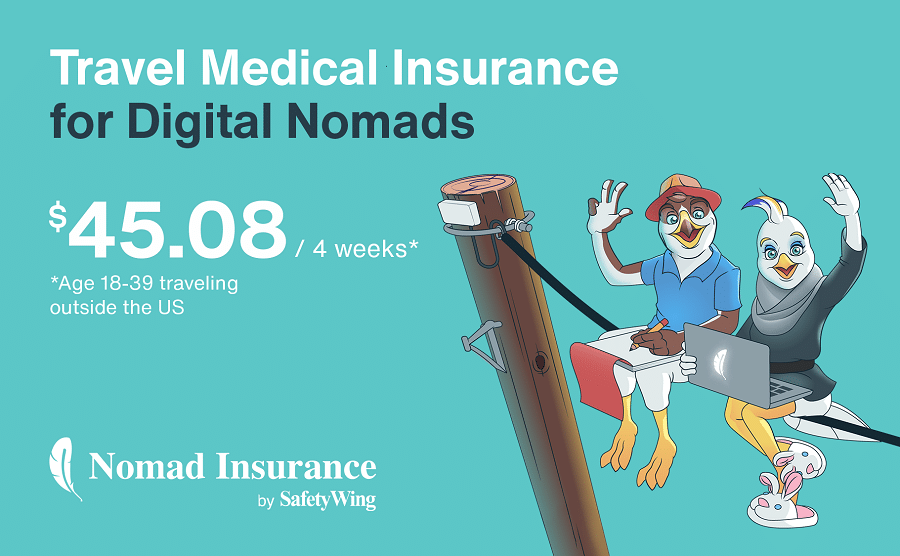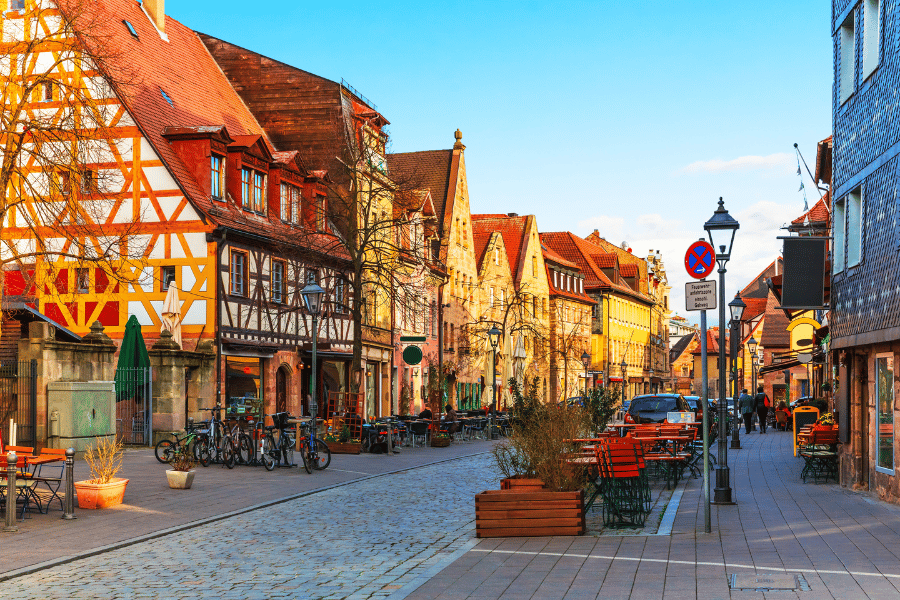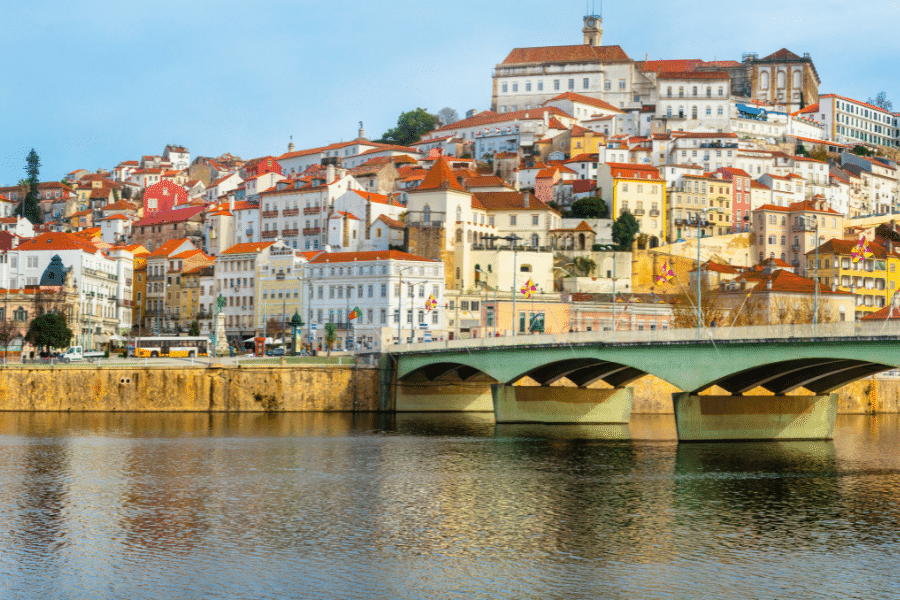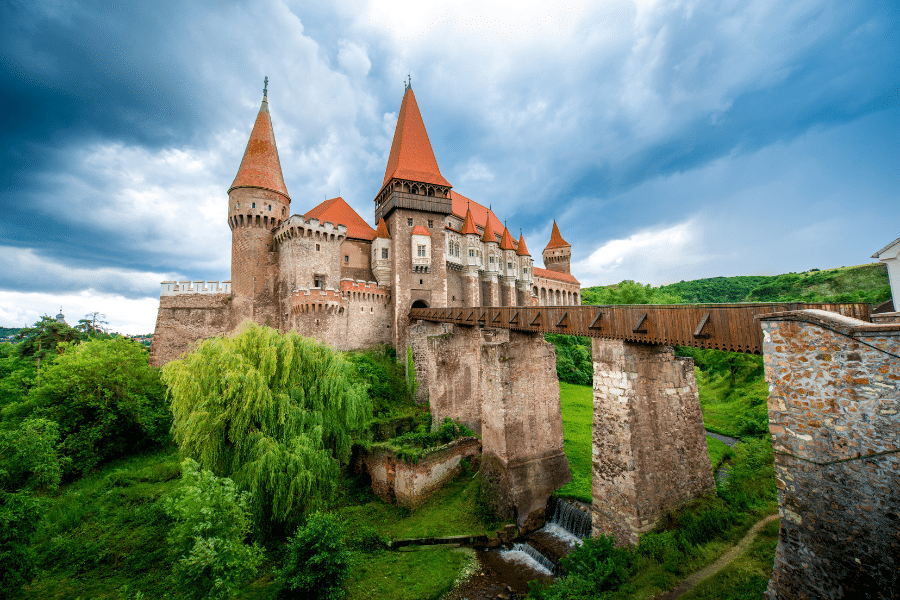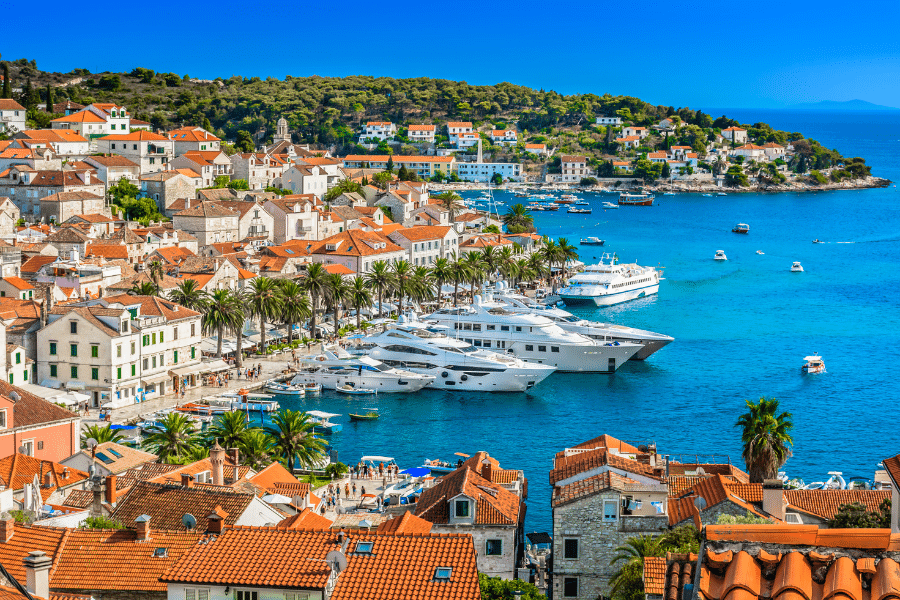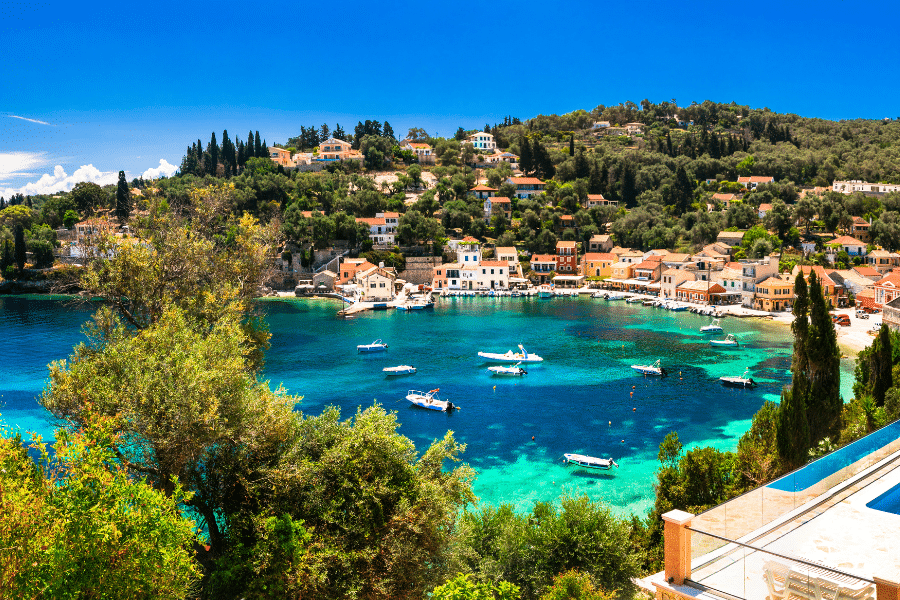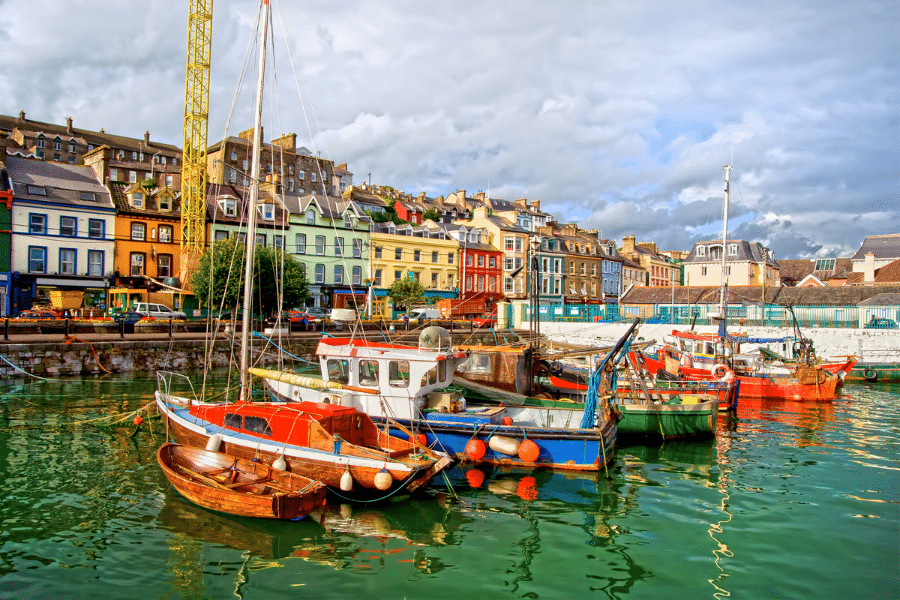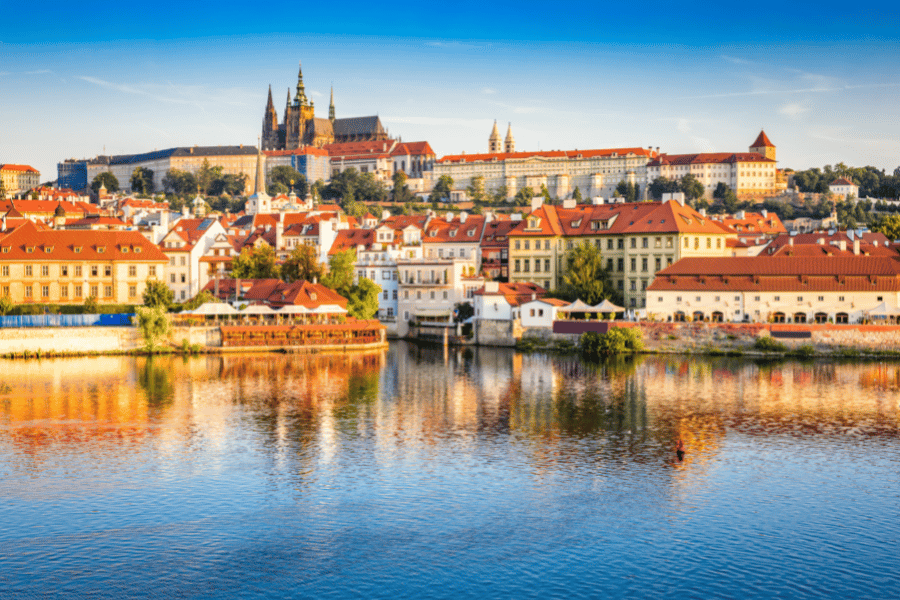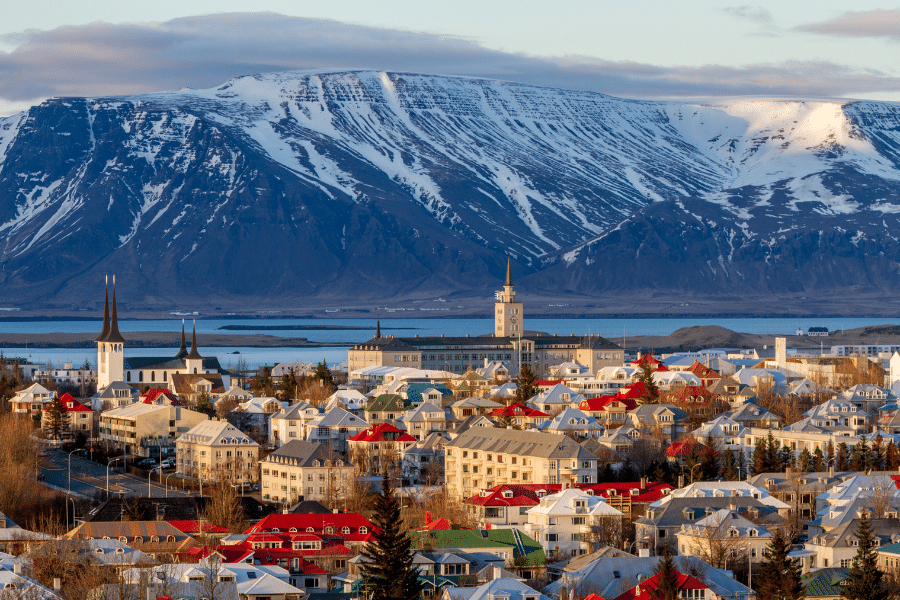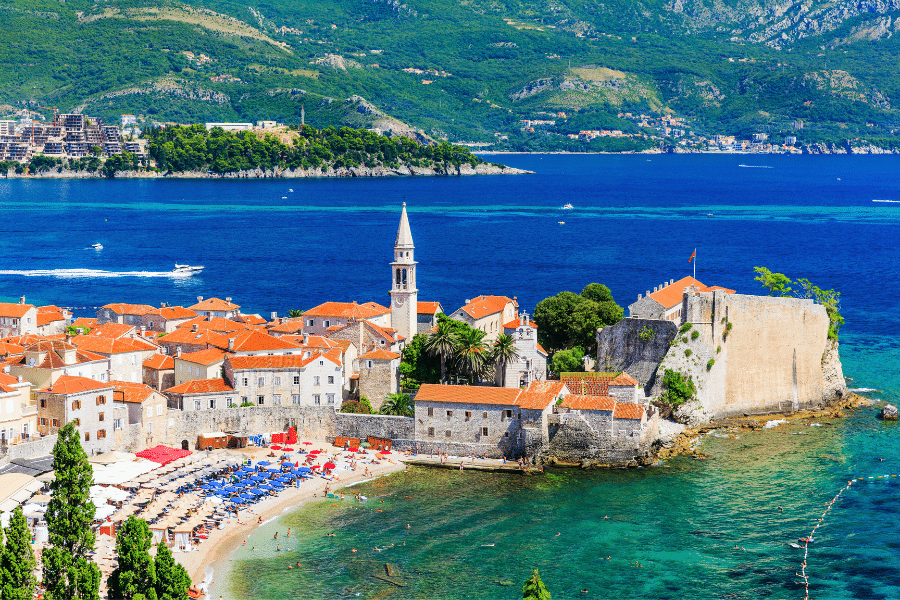There are an estimated 35 million digital nomads worldwide and some of the best countries for digital nomads are in Europe. Working as a digital nomad is a great way to enjoy travelling to other countries and a better work-leisure balance.
Modern technology and communication tools made it is remarkably easy to work remotely around the globe as a digital nomad. Immediately following the pandemic, some European countries have launched new visa programs to attract skilled IT workers and digital nomads to help boost their economies.
Being a digital nomad in Europe is among the best experiences in the world. You can work from a coffee shop in Prague, a gorgeous beach in Greece or a nice apartment overlooking the historic center of a quaint Croatian town.
To help you choose your next work destination, we’ve put together a list of the best places in Europe to work as a digital nomad, including only the countries that currently offer digital nomad or equivalent visas (DNV).
To do so, we scrutinized the visa programs in each country, researched internet speed and cost, tax advantages, and the country’s attributes that make it attractive and convenient to digital nomads to work from abroad. Comparing visa income requirements, the complexity of the visa application process, the benefits each program offers and the availablity of fast and affordable internet, we found that the top 5 best countries for digital nomads in Europe are:
- Spain
- Hungary
- Malta
- Germany
- Portugal
Here are the best countries in Europe to work as a digital nomad:
1. Spain
- Fixed broadband internet speed: 176.74
- Broadband internet price category: relatively inexpensive
- Minimum monthly income requirement: €2,490 ($2,655)
Spain is one of the most attractive countries in the world for visitors, retirees and expats alike. With a great diversity of landscapes, including long stretches of beaches and coastlines, imposing mountains and world-class cities, Spain is a top choice for digital nomads looking to explore a rich culture and tradition, great weather all year and amazing cuisine.
In 2023, Spain launched a new digital nomad visa program that allows any foreigner to live in Spain as a resident and work remotely for a company outside of Spain. An extra perk of the Spanish digital nomad visa is that if you are self-employed, you are also allowed to work for a company located in Spain for up to 20% of your professional activity.
The digital nomad visa requirements for Spain include:
- A visa application form
- A valid passport
- A criminal record certificate
- Proof of residence in your home country
- Proof of identity
- Health insurance
A straightforward application process and reasonable income requirements make the Spanish digital nomad visa the best in Europe at the moment. Applicants have to provide a copy of their university degree or professional certificate and proof of a minimum of three years of experience in their business activity or employment history.
Family members also qualify to accompany the primary applicant with a lower minimum income requirement. The visa is valid for one year, with the possiblity to extend it.
For complete details, application forms and locations, please visit the official website.
2. Hungary
- Fixed broadband internet speed: 126.51
- Broadband internet price category: inexpensive
- Minimum monthly income requirement: €2,000 ($2,143)
Hungary is the land of beautiful lakes and lavish thermal baths. Lake Balaton is a great place to visit for its diversity of wildlife, and Lake Hévíz is Europe’s largest thermal lake.
The capital city of Budapest is one of the coolest large cities in Europe, a fantastic place to experience as a digital nomad.
Hungary has a fast and inexpensive internet connection and its visa program is one of the easier digital nomad visas to obtain in Europe, with a low income threshhold, which make the country a great choice for digital nomads.
The Hungary Digital Nomad Visa, known as the White Card, was launched in November 2021.
- The White Card is an individual residency permit that is primarily aimed at single people aged under 40 years from non-EU countries.
- The visa is for one year and this may be extended for a further year if applicants still meet the criteria.
- One of the key requirements for an application is a minimum income of €2,000 and applicants must have received this minimum salary for at least six months prior to their arrival in Hungary.
The Hungarian DNV is a 2-part application. The first part is completed by submitting your residence permit application to your local Hungarian Embassy. Once your application has been approved, you will be sent an entry visa that allows you to enter Hungary.
The second part of the application is for the White Card (which is a Type D Visa) and this must be in person at your local National Directorate-General for Aliens Policing within one month of arrival in Hungary.
Other requirements for the White Card are similar to those in other European countries:
- Proof of employment by a company registered outside Hungary
- Proof of health insurance to cover the whole stay in Hungary
- Proof of accommodation
The application for a White Card usually takes two months to process and costs between €73 – €123, depending where the application is made.
Digital nomads in Hungary are considered tax residents only after they’ve lived there for more than 183 days (half a year). They will be required to pay taxes after the 183rd day of their stay, as well as pay social contributions.
The Hungarian DNV is issued for one year. For the most complete and up to date information on the Hungarian digital nomad visa, please visit the official website.
3. Malta
- Fixed broadband internet speed: 103.81
- Broadband internet price category: relatively expensive
- Minimum income requirement: €2,700 ($2,893)
If you’re looking for a sunny location to work as a digital nomad, Malta is fun choice. The Mediterranean Island has great weather all year round and beautiful beaches. There are many different outdoor activities to try, including walking and cycling, and the clear waters that surround it are perfect for scuba diving.
On the work front, Malta has an impressive tech ecosystem, with many international companies establishing offices on the island. For digital nomads this is good news as the Maltese government is actively promoting innovation and attracting foreign talent to the country. Another big bonus for digital nomads is that Malta has 5G internet accessibility.
Malta launched its digital nomad program in 2021 to give temporary residency rights to workers from non-EU and non-EEA countries.
- The visa is valid for one year – although in some cases this can be extended.
- Applicants must work for a company based outside Malta.
- Applicants must have a gross monthly income of at least €2,700.
Besides these key requirements, other important points to note when making an application include:
- Applicants must have health insurance to cover their stay in Malta and also have current proof of health.
- Digital nomads are exempt from the country’s double taxation.
- The application fee for a digital nomad visa is €300.
It takes about 30 days for the visa application to be processed and full requirements for applicants can be found on the official website.
Health insurance is one of the key requirements for all digital nomad visa programs in Europe. Countries want to ensure that you will not be a burden on the local healthcare system during your stay. You can get reliable and affordable health insurance coverage customized for digital nomads from Safetywing, the most popular insurance provider for nomads.
4. Germany
- Fixed broadband internet speed: 85.86
- Broadband internet price category: relatively inexpensive
- Minimum monthly income requirement: €4,867 ($5,214)
Germany is one of the most technologically advanced countries in Europe. It is a large and diverse country with mighty rivers, magnificent countryside and some fascinating towns and cities worth exploring and spending time in.
German food is excellent, portions are always generous and its wines and beers have a worldwide reputation. There are plenty of sports to enjoy in Germany including skiing in mountain areas during the winter months.
Although Germany does not have a digital nomad visa scheme per se, it is still possible to apply for a residence permit for freelance work as a Freiberufler in one of the 22 ‘liberal’ professions which include artists, writers, teachers, journalists and photographers. You can apply for the Freiberufler at your local German embassy and the paperwork will take three months to be processed.
Who needs a residence permit?
- All non-EU nationals need a residence permit to be employed in Germany. By law the residence permit much give detailed information where the holder has a job and for what kind of work. This new-style residence permit replaces the old work permit. If you are seeking work a professional practice permit is also required.
- The Freiberufler is valid for one year, but can be renewed.
- Proof is required of an annual salary of a minimum of €58,400 or a minimum of €45,552 for those foreigners working in mathematics, IT, natural sciences, engineering and human medicine. This is one of the highest minimum income requirements in Europe for digital nomads.
Other requirements for the residence permit application include:
- Valid passport.
- Complete application form, two biometric photographs and application fee.
- Adequate health insurance to cover your stay in Germany.
The cost of residence permit varies. For skilled workers, it is €113 and for freelancers and self-employed, the fee is €124. A highly qualified professional will be charged €147.
For complete information on legally working as a freelancer in Germany, visit the official website or try the German Foreign Affairs Office visa navigator tool.
5. Portugal
- Fixed broadband internet speed: 130.12
- Broadband internet price category: expensive
- Minimum income requirement: €3,040 ($3,257)
Portugal is a popular place to visit for its natural beauty and lovely warm weather. It has a rich history to discover, stunning landscapes and vibrant cities, plus excellent food and wine.
For digital nomads, Portugal is an attractive destination as it offers eligible digital nomads a tax rate of just 20% on their foreign-sourced income – and this is for up to 10 years.
The Portuguese digital nomad visa program was launched in October 2022. Cities such as Lisbon, Porto and Braga are all popular locations for digital nomads and the internet speed in Portugal is among the best in Europe, although a bit expensive.
The main points about Portugal’s visa program are:
- There are two categories of visa. The first is a temporary residency permit that is valid for one year and the second is a Portuguese residency visa which can be renewed for up to five years.
- The minimum wage requirement is €3,040 ($3,257) per month. This is based on the calculation of four times the national minimum wage.
The residence permit must be applied for on arrival in Portugal and costs about €320. The visa application is €180 – but these fees vary depending on the country from which applications are made. Applicants must also obtain a Portuguese tax number and local bank account.
For the complete and up to date information on how to apply for a digital nomad visa in Portugal, visit the official website.
6. Romania
- Fixed broadband internet speed: 166.96
- Broadband internet price category: inexpensive
- Minimum monthly income requirement: €4,110 ($4,403)
Romania is an amazing country with the most bio-geographically diverse landscape in the EU. There are snow-capped mountains, rolling hills covered with grape vines and forests, medieval castles, Black Sea beach resorts and Europe’s best delta to see, the Danube Delta.
The Digital nomad visa program was introduced in Romania in 2021 to boost the local economy. Romanian cities such as Bucharest, Cluj-Napoca, Timisoara or Brasov offer many modern co-working spaces and the fastest and cheapest internet speed in the EU.
If digital nomads are paying tax in their home country, the Romanian Government does not charge any further taxes for the first six months of their stay in Romania (183 days). The cost of living is also very affordable in Romania.
- The visa is for all non-EU digital nomads. The Romanian Government hopes to attract 2,000 people each year. The visa is valid for 12 months and can be renewed for another 12 months.
- Proof of employment such as a contact of employment from a company outside Romania or a document that shows you are self-employed. Both the original documents plus Romanian translations must be submitted.
- Visa applicants must provide proof of income for the previous six months and this must be at least three times the Romanian average gross monthly pay (€1,370 in 2023), which adds to an income requirement of €4,110.
Other requirements for visa applicants include:
- A letter of intent stating what work you will in Romania and the reason for your travelling there. There needs to be two copies of the letter – the original and a Romanian translation.
- Proof of accommodation.
- Valid health insurance for your entire stay.
- Certificate of clear criminal record.
The application form is straightforward and can be completed online through the Ministry of Foreign Affairs or in person or local Romanian embassy.
To complete the application online, create an account on the Romanian eVisa platform, send in your required documents and apply. T Visas are usually approved within 12-14 days. The application fee for a long-stay visa is 120 euros.
For complete details about the digital nomad visa in Romania, visit the official website.
7. Norway
- Fixed broadband internet speed: 106.52
- Broadband internet price category: expensive
- Minimum monthly income requirement: €2,977 ($3,189)
Visiting Norway is an amazing experience and there are so many reasons to do so: its stunning mountains, fjords, the Northern Lights, whale watching and much more.
Norway welcomes digital nomads through its independent contractor visa. This visa does not allow foreigners to work in the country and one of the key requirements is that the applicant has one Norwegian customer. The key things to know about the contractor visa are:
- The visa is valid for two years.
- Proof of employment with a company outside Norway is required.
- The minimum income requirement is €35,719 per year.
Other requirements include:
- A signed contract with a Norwegian client.
- Proof of address for accommodation in Norway.
You can apply for the visa in person either at a police station in Norway, or via a Norwegian embassy in your home country. The application fee is €600.
Full details about the process of obtaining the Norwegian digital nomad visa are available on the official website.
We recommend the nomad health insurance from Safetywing, the most affordable comprehensive coverage for digital nomads around the world.
8. Croatia
- Fixed broadband internet speed: 36.13
- Broadband internet price category: expensive
- Minimum monthly income requirement: €2,540 ($2,721)
Located at the crossroads of Central and Southeastern Europe, Croatia is a great place to be a digital nomad as it has some of the most stunning scenery on the entire continent, including a beautiful coastline, lush national parks and charming historic towns.
It is estimated that around 5,000 digital nomads visit Croatia every year, so you can benefit from being part of a great digital nomad community. Accommodation and co-working spaces are reasonably priced, but internet services are rather expensive compared to other countries in Europe.
The most popular city for digital nomads is Zagreb, the capital, as well as the coastal towns of Split, Zadar, Sibenik and Dubrovnik.
Croatia has had a digital nomad visa program since January 2021. This type of visa is like a temporary residence permit and allows digital nomads:
- To live on Croatian territory while working remotely as a foreign freelancer or private business owner.
- To stay in Croatia for 6 to 12 months; once the visa has expired it is necessary to leave the country for 90 days before returning and re-applying for another visa.
Proof is required of a minimum monthly income for your stay in the Republic of Croatia of €2,539.31 per month
The official website states:
‘A digital nomad is a third-country national (this means a non-EU/EEA/ Swiss citizen) who is employed or performs work through communication technology for a company or his own company, that is not registered in the Republic of Croatia and does not perform work or provide services to employers in the Republic of Croatia’.
Digital nomad visa applications can be made at the embassy or consulate in your home country or at a police administration center. The application form must be completed in English or Croatian and among the requirements:
- Valid passport
- Health insurance to cover your stay in Croatia
- Contract of employment or service contract with a foreign employer.
The total cost of the visa application varies depending on whether you apply at an embassy outside of Croatia or at a police administration office in Croatia, and it includes multiple fees ranging from €46.45 to €93.
For full details on the process and the requirements to obtain your digital nomad visa for Croatia visit the official website.
9. Greece
- Fixed broadband internet speed: 41.80
- Broadband internet price category: relatively expensive
- Minimum monthly income requirement: €3,500 ($3,750)
With its beautiful climate, stunning beaches and excellent food, Greece is becoming an increasingly popular destination for digital nomads. Choose the vibrancy of its cities or the magic of its islands – Greece offers a great diversity of beautiful locations to live and work in.
Athens and Thessaloniki are the largest cities on mainland Greece and the country’s cultural capitals. They are hotspots for digital nomads because of their good infrastructure, numerous co-working spaces, and strong creative communities.
The beautiful Greek islands are well-known for their laid-back lifestyle and world-renowned beaches. The islands can be a great choice for remote work with lovely outdoor coffee shops and tavernas, with some larger islands even offering co-working spaces.
The downside of working in Greece as a digital nomad is that the internet speed is not great compared to other countries and it can be relatively expensive. If you are considering working as a digital nomad in Greece, be sure to choose a location with reliable internet connection, either on the mainland or on one of the larger islands.
Greece introduced the digital nomad visa in 2021 through Law 4825/2021 for non-EU residents who want to work remotely from Greece. Here’s a quick overview of the visa:
- Digital nomads from non-EU countries are required to apply for a Digital Nomad Visa, which is a Type-D visa
- The visa is usually valid for one year.
- Applicants must provide bank statements and pay slips to prove that they have a minimum monthly income of €3,500 (plus €700 for their spouse if they are not working).
Becoming a digital nomad in Greece is not difficult. As soon as you arrive there, you must get yourself a Greek tax number, open an account in a Greek bank and purchase a local phone SIM card.
Other requirements for the visa application include:
- A completed application form.
- Provide proof of work for the duration of their stay showing that telecommunications technology is required for the work.
- Proof of where they are living in Greece such as a rental agreement.
The charges for a visa application are €75, plus a €150 administration fee. For the full list of requirements and costs consult the official website and on this website.
10. Ireland
- Fixed broadband internet speed: 90.44
- Broadband internet price category: expensive
- Minimum income requirement: N/A
Known as the ‘Emerald Isle’ Ireland is a great place to choose if you are a digital nomad. Ireland has stunning landscapes and lovely towns and villages. Its capital, Dublin, is filled with beautiful architecture and plenty of things to do. Ireland has a good quality of life, an interesting culture and plenty of fun nightlife.
Importantly, for digital nomads, Ireland is said to have a fast broadband connection and there are numerous digital hubs with a lively nomad community.
The Republic of Ireland does not have a specific visa for digital nomads. However, Ireland offers work permits for occupations in demand under the Irish Critical Skills Employment Permit.
If you are a non-EEA national, you will need a valid Employment Permit or an Atypical Permission first.
Depending on your nationality, you may also be required to apply for a visa. Depending on the duration of your work you will either have to apply for a short stay (C) visa or a long stay (D) visa before coming to Ireland.
In the first instance most people apply for a short stay visa:
- The applicant must be working remotely and not for an Irish company.
- The short stay visa allows you to stay in Ireland for 90 days. This can be extended by an additional 90 days.
US citizens can work in Ireland for up to 90 days visa-free. Green card holders however, must apply for a short stay ‘C’ visa. Citizens from Canada, Australia and New Zealand can also work remotely in Ireland for up to 90 days without a visa.
There is no minimum income requirement for the Short Stay ‘C’ Visa. However, you must prove with bank statements that you have enough funds to sustain yourself during your visit.
Depending on which type of visa you apply for, there may be the chance to extend your time in Ireland. There is no requirement to show proof of health insurance to make the visa application, but you may have to do so once your application is approved. The cost of a visa for Ireland is €60. Consult the official website for more details.
11. Czech Republic
- Fixed broadband internet speed: 57.26
- Broadband internet price category: relatively inexpensive
- Minimum monthly income requirement: €2,484 ($2,662)
The Czech Republic is situated in Central Europe and is a popular destination for digital nomads as it is inland and surrounded by other countries that can be visited easily. Austria lies to the south of the country, Poland to the northeast and Slovakia to the southeast.
The Czech Republic is a fascinating country itself, a land of fairytale castles, towns full of character and beautiful nature.
Recently, the Czech Republic introduced its digital nomad visa program for those who have a stable job and income to help with its shortage of IT professionals and boost its economy.
The digital nomad visa is designed to attract skilled professionals from eight countries: Australia, Canada, Japan, New Zealand, South Korea, Taiwan, the U.K. and the United States.
The visa is usually valid for one year. Holders can then apply for a residence permit which will extend their stay by an additional two years.
In order to be eligible for the Czeck digital nomad visa, candidates must possess a university degree at the bachelor’s level or higher in a field related to science, technology, engineering, or mathematics (commonly referred to as STEM), or demonstrate a minimum of three years of professional experience in the IT industry.
Remote employees affiliated with overseas organizations are required to meet a monthly income threshold of CZK 60,530 (approximately equivalent to €2,484 or $2,662). For freelancers, a Czech business license is mandatory, allowing them to offer their services to Czech firms on a contractual basis.
Application can be made on arrival in the country or through the Czech Consulate in your home country. Your application must be translated into Czech. Among the other requirements are:
- You must have a valid passport with at least two blank pages
- A business permit to work self-employed in the Czech Republic.
- You must have at least 124,500 CZK in your account (equivalent to €5,110 or $5,475).
- You must have medical insurance to cover your stay in the Czech Republic
The cost of the digital nomad visa for the Czech Republic is CZK 2,500 (about €103 or $110). For complete and the most up to date information on the Czech digital nomad visa, please visit the official website.
12. Latvia
- Fixed broadband internet speed: 69.51
- Broadband internet price category: inexpensive
- Minimum income requirement: €2,857 ($3,061)
Situated on the Baltic Sea, Latvia is a very affordable country. It is the perfect choice for those who want to enjoy its coastline which stretches more than 500 km and has beautiful, interesting beaches fringed by pine forests.
Latvia also has many castles to explore. The city of Riga is the primary hotspot for digital nomads in Latvia and has the largest market in Europe.
The application process for a Latvian digital visa is straight forward, but because the visa is relatively new in Latvia (it was launched in April 2022) there are some details yet to be finalized.
Applications can be made in person at the Latvian Embassy in your home country, and it is expected that in the future it will be possible to complete the application online.
- Visa applicants must be from countries that are members of The Organization for Economic Co-operation and Development(OECD) which comprises of both EU and non-EU countries including the United States.
- The digital nomad visa is for one year, but may be renewed for a second year.
- Nomads must earn a monthly salary of at least 2.5 times the average monthly gross salary in Latvia to obtain a visa (currently €2,857) and must be employed by a company in the OECD.
Visa applicants are also required to have:
- Valid health insurance
- The Latvia digital nomad visa fee which is €60
Get the complete details on the visa requirements, costs and process on the official website.
13. Iceland
- Fixed broadband internet speed: 150.97
- Broadband internet price category: expensive
- Minimum income requirement: €7,000 ($7,465)
Iceland has the nickname ‘the land of fire and ice”. Its dramatic landscape has been shaped by glaciers and volcanoes and the result is both amazingly beautiful and totally unique. Iceland is sparsely populated so you can enjoy wide open spaces that are naturally beautiful and well known for its friendly people.
Iceland is a unique but expensive choice for digital nomads, as prices are higher than in much of Europe. Today, some of restaurants Reykjavik (the capital) are amongst the best in Europe with much of its meat being smoked and hangikjöt (smoked lamb) being one of its top specialties along with shark meat.
The digital nomad visa for Iceland allows remote workers to live and work in the country for between 90-180 days. Workers must be self-employed or work for a company that is based outside Iceland. They are not permitted to work for local employers or to be employed in the Icelandic labor market in any other way.
The digital nomad visa for Iceland is aimed at non-EU/EEA citizens.
Besides working for a company remotely, there is also the possibility to find work on Iceland’s Skill Shortage List: Iceland has had programs to attract foreign workers in specific fields.
The digital nomad visa is valid for a maximum of 180 days.
Applicants for the visa must be earning a minimum of $7,465 per month – this is one of the highest income requirements for digital nomads in the world.
Among other criteria, applicants must have proof that they have health/travel insurance to cover their stay in Iceland and must pay an application fee of $60 when they submit their completed application form.
For the full details, costs, and the application process to obtain a digital nomad visa in Iceland, please visit the official website.
14. Montenegro
- Fixed broadband internet speed: 44.62
- Broadband internet price category: N/A
- Minimum monthly income requirement: €1,350 ($1,446)
Montenegro announced that it will shortly be launching its digital nomad visa program and is expecting plenty of interest in it. The country is ideal for digital nomads as it has a low cost of living, great scenery and a warm climate.
The best places in Montenegro for digital nomads is its capital city Podgorica and towns on its stunning Adriatic coast. The digital nomad community is on the rise in the capital and there are many co-working spaces and cafes to work from. The visa will be:
- Aimed at all non-EU digital nomads.
- The visa will be valid for two years with the chance to extend for a further two years.
- Proof of income of at least €1,350 for the previous 12 months.
Proof of health insurance and of accommodation in Montenegro will also be required. The cost of the visa is estimated to be €67.
Some of these details may change. Keep an eye on the official website for upcoming announcements about the launch of the digital nomad visa in Montenegro.
You can get great health insurance from Safetywing, the most affordable comprehensive coverage for digital nomads around the world.
Please keep in mind that the amounts and details included in this guide are valid as of the date of publication and may change over time.
In many countries, the income requirements are dependent on the national median income, and these amounts change periodically.
For the most accurate and up to date information, please visit the official websites for each country.
The digital nomad visa programs that are now offered by so many European countries provide the perfect way to mix business with pleasure and to really get to know other countries, which you can really only do by living there.
Certainly, there are some marvelous European countries to live in as a digital nomad, the only problem is, which one to choose.
Methodology and data sources:
- Fixed broadband internet speed data source: Speedtest.net.
- Broadband internet prices data source: The European Commission.
- Amounts are converted from the local currency to Euro and from Euro to US dollars at conversion rates valid as of the date of this report; some amounts may be rounded.
